Introduction
In a world where communication is key, businesses are increasingly turning to innovative solutions like the best LLM API services to enhance their interaction with customers and streamline operations.
Enter LLM as a Service, a groundbreaking technology that empowers organizations to harness the power of large language models without the complexities of building their own.
Did you know that 70% of organizations are expected to integrate AI into their workflows by 2025? This staggering statistic highlights the rapid shift toward AI-driven solutions, with top LLM providers at the forefront of this revolution.
Imagine a small business owner juggling customer queries, content creation, and data analysis—all while trying to maintain that personal touch. With LLM as a Service, this dream becomes a reality, allowing businesses to automate and enhance their communication effortlessly.
Whether it’s generating engaging content, understanding customer intent, or providing personalized recommendations, the best LLM platforms are transforming the landscape of business communication.
Join us as we explore the top 10 best LLM as a Service providers in 2025, helping you find the perfect AI language model to elevate your business to new heights!
List of 10 Best LLM as a Service Providers
Following are the top 10 best LLM as a service provider in the market, with their key features:
1. OpenAI (ChatGPT & GPT Models)
OpenAI’s GPT models, including ChatGPT, are some of the most widely known and used LLMs.
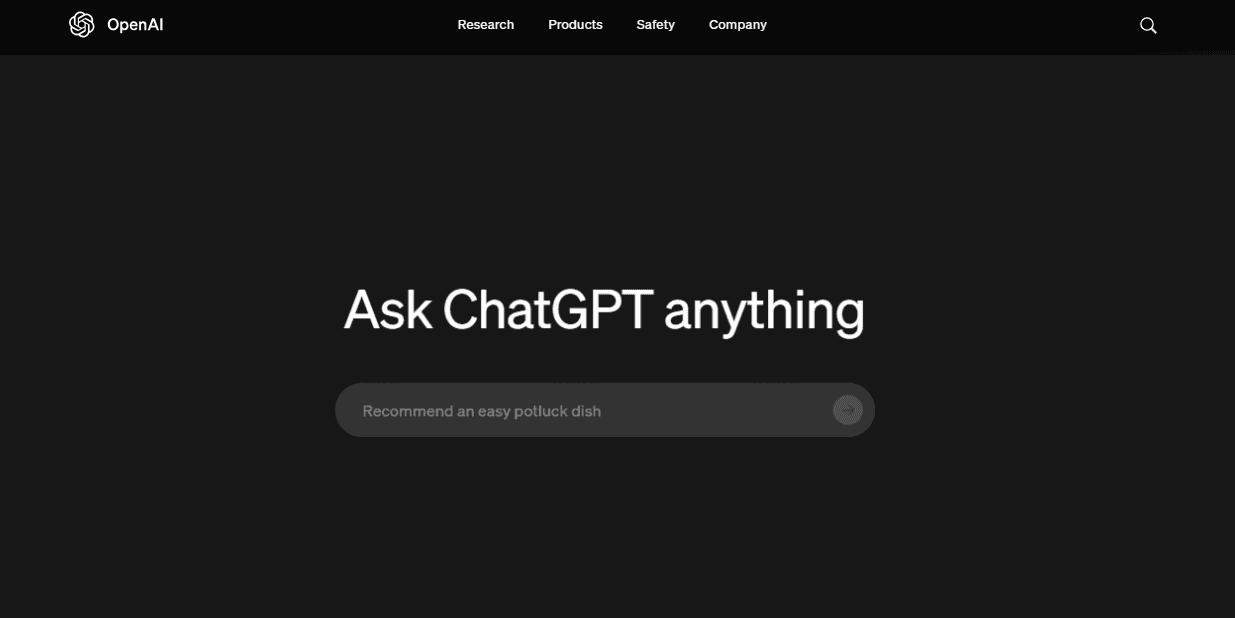
These models are designed to understand and generate natural language text, helping businesses automate communication and content tasks.
As a leading LLM as a Service provider, OpenAI offers access to various models with different capabilities, catering to diverse business needs.
Key Features
OpenAI provides advanced features as part of its LLM as a Service, enabling businesses to effectively harness language models' power.
- High-quality language understanding and generation: OpenAI’s models generate coherent and contextually relevant text.
- Multi-turn conversations: These models can engage in conversations that mimic human-like responses, making interactions more natural.
- Continuous improvements: OpenAI regularly updates its models, ensuring users benefit from the latest advancements in language processing.
Pros and Cons
OpenAI's LLM as a Service comes with notable advantages and some considerations for users to remember.
Pros:
- Excellent language generation capabilities.
- Wide developer support and community resources.
- Flexible pricing options that cater to different business models.
Cons:
- High costs can accrue for extensive usage.
- Limited customization options for specific industry needs.
2. Google Cloud AI (PaLM Models)
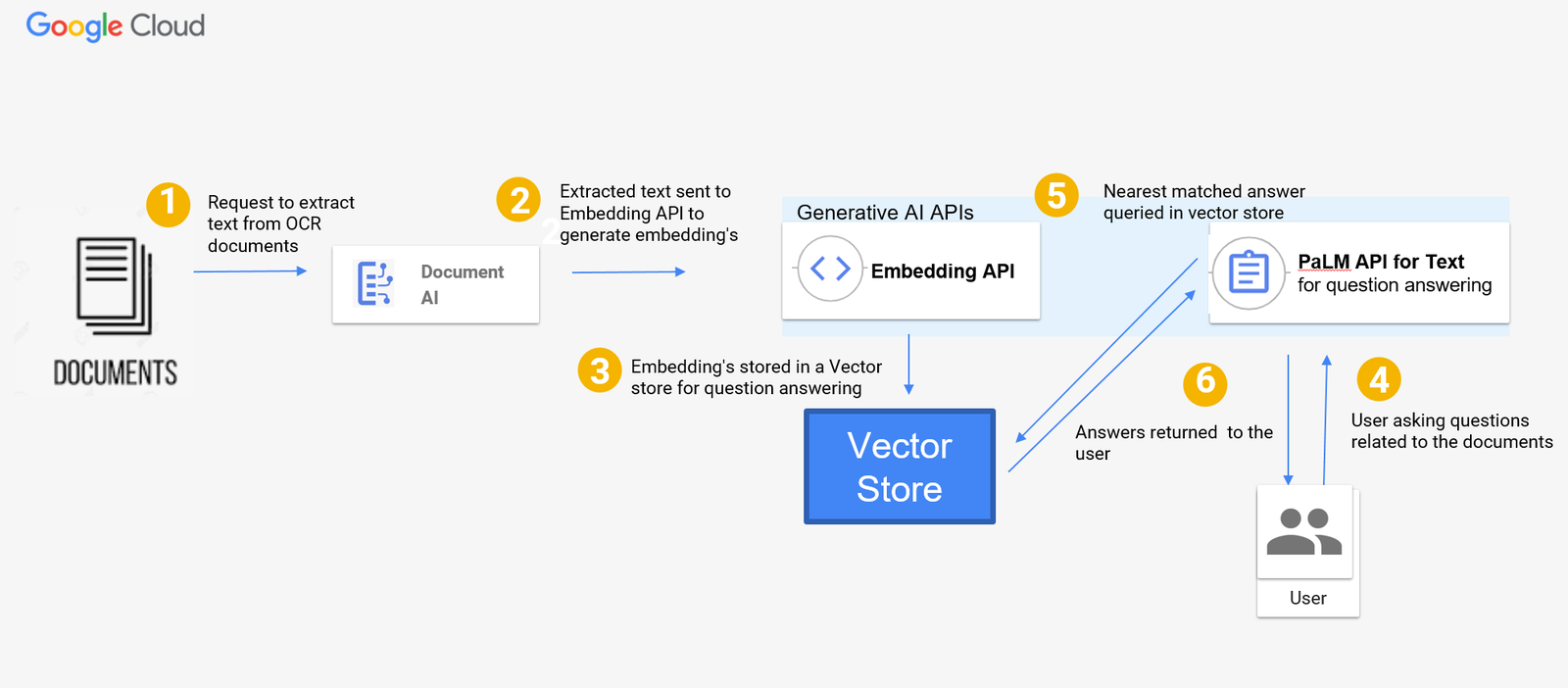
Google’s PaLM models are integrated into Google Cloud AI, offering advanced language understanding and generation services.
This LLM as a Service is designed for handling large datasets and is highly scalable, making it ideal for enterprise-level applications and complex projects.
Key Features
Google Cloud AI delivers powerful features as part of its LLM as a Service, making it a strong choice for businesses looking to enhance their language capabilities.
- High scalability: Google Cloud AI models can efficiently process large volumes of data, making them suitable for big data applications.
- Strong integration: Seamless integration with other Google Cloud services enhances the overall functionality and utility of businesses already using Google's ecosystem.
- Efficient text and code generation: These models excel in generating both natural language text and programming code, appealing to a wide range of industries.
Pros and Cons
When considering Google Cloud AI's LLM as a Service, businesses should weigh the benefits against the potential challenges.
Pros
- Seamless integration with Google Cloud services improves overall functionality.
- Powerful processing capabilities suitable for complex applications.
Cons
- Can be complex for smaller teams, requiring a certain level of expertise.
- Pricing can escalate for large projects if not monitored closely.
3. Microsoft Azure OpenAI Service

Microsoft Azure partners with OpenAI to offer LLM services through its cloud platform.
With direct access to powerful GPT models, Azure provides robust language processing tools tailored to business needs, complemented by extensive integration options for cloud solutions.
This partnership positions Microsoft as a significant player in the LLM as a Service landscape.
Key Features
Microsoft Azure's LLM as a Service provides a comprehensive suite of features designed for enterprise-level language processing needs.
- Direct access to OpenAI’s GPT models: Users benefit from the latest advancements in language models, directly through Azure.
- Full integration with Azure services: This allows businesses to leverage existing cloud solutions seamlessly alongside LLM capabilities.
- Built-in compliance and security measures: Azure provides strong security protocols, making it a reliable choice for enterprise applications.
Pros and Cons
Organizations should consider both the pros and cons of using Microsoft Azure's LLM as a Service to make an informed decision.
Pros
- Secure and scalable solutions that cater to enterprise needs.
- Extensive support for integration within the Microsoft ecosystem.
Cons
- Costs can be high for high-volume usage, which may deter smaller businesses.
- Requires Azure expertise for optimal use, which can be a barrier for some teams.
4. Anthropic (Claude Models)
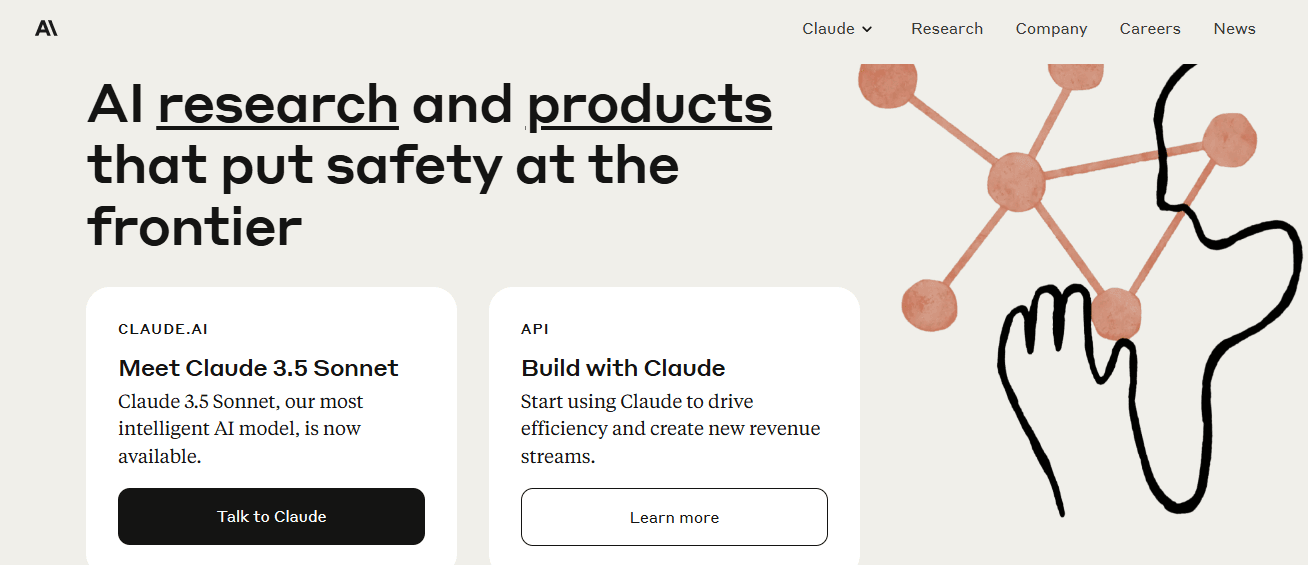
Anthropic's Claude models focus on providing safe and reliable AI services.
As a dedicated LLM as a Service provider, these models are designed with a strong emphasis on ethics and AI safety, ensuring robust language generation capabilities while minimizing risks associated with AI use.
Key Features
Anthropic’s Claude models stand out in the LLM as a Service space by prioritizing ethical considerations and user safety, making them ideal for sensitive applications.
- Emphasis on AI safety and reliability: Claude models are built to mitigate risks and enhance the trustworthiness of AI interactions.
- Excellent at following instructions: These models excel at maintaining context in conversations, allowing for coherent and contextually relevant interactions.
- Strong ethical guidelines: The development of Claude models is governed by robust ethical standards, ensuring responsible AI usage.
Pros and Cons
When considering Anthropic's LLM as a Service, businesses should evaluate its strengths and potential limitations.
Pros:
- A strong ethical focus makes it suitable for responsible AI applications.
- Excellent reliability and safety features enhance user confidence.
Cons:
- Not as widely available or integrated as other LLM providers, which may limit adoption in some scenarios.
5. Cohere
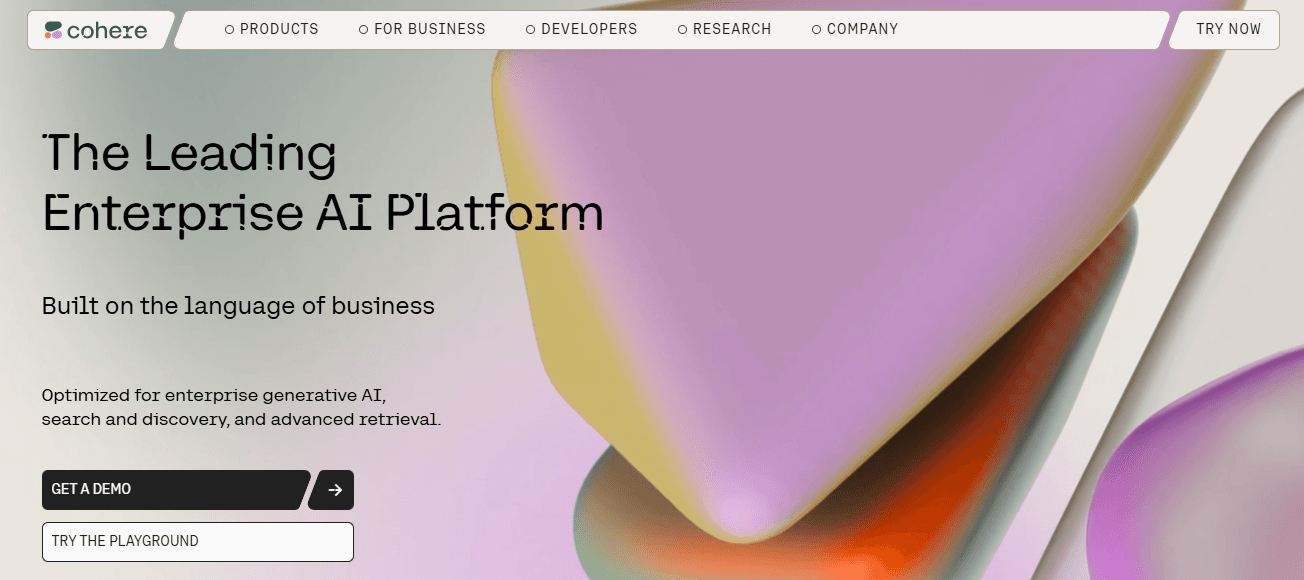
Cohere offers natural language processing services with models specifically designed for text generation, classification, and search tasks.
As an innovative LLM as a Service provider, Cohere provides flexible APIs for developers and businesses to build AI-powered applications with ease.
Key Features
Cohere’s LLM as a Service is tailored for businesses seeking customizable language processing solutions to meet specific needs.
- Customizable models: Businesses can adapt the models for specific applications, ensuring relevance to their unique requirements.
- Real-time text analysis: Cohere excels in providing immediate text generation and analysis, enhancing productivity.
- Easy-to-use API integration: Developers can seamlessly integrate these models into their applications, making them accessible for various projects.
Pros and Cons
Cohere’s LLM as a Service provides a blend of advantages and some considerations for businesses looking to leverage AI capabilities.
Pros:
- Highly customizable solutions cater to diverse business needs.
- Developer-friendly APIs simplify the integration process.
Cons:
- Smaller user base compared to giants like Google and OpenAI, which may impact community support.
- Fewer integrations are available, limiting compatibility with existing systems.
6. Hugging Face
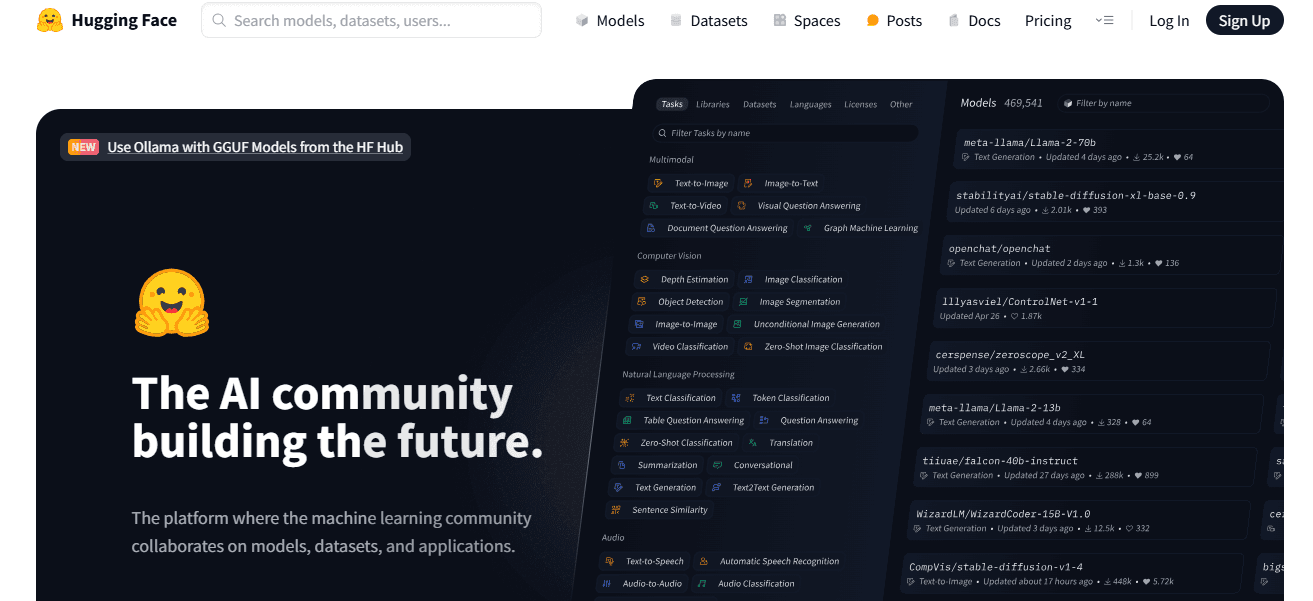
Hugging Face is renowned for its large open-source community and accessible AI models.
As a leading LLM as a Service provider, it offers state-of-the-art language models that businesses can leverage to enhance their operations and services.
Key Features
Hugging Face’s LLM as a Service stands out for its open-source nature and extensive community support, making it a favorite among developers.
- Wide selection of pre-trained models: Users can access a variety of models suitable for different tasks and industries.
- Strong community support: The collaborative environment fosters innovation and provides resources for users seeking guidance.
- Fine-tuning options: Businesses can customize models for specific tasks, enhancing their effectiveness in real-world applications.
Pros and Cons
While Hugging Face’s LLM as a Service offers substantial benefits, users should also consider potential drawbacks.
Pros:
- Open-source and customizable models foster flexibility and innovation.
- Excellent community support enhances the user experience and resource availability.
Cons:
- Limited enterprise-level features may restrict usability for larger organizations.
- The setup process may require more effort, especially for users new to AI.
7. Aleph Alpha
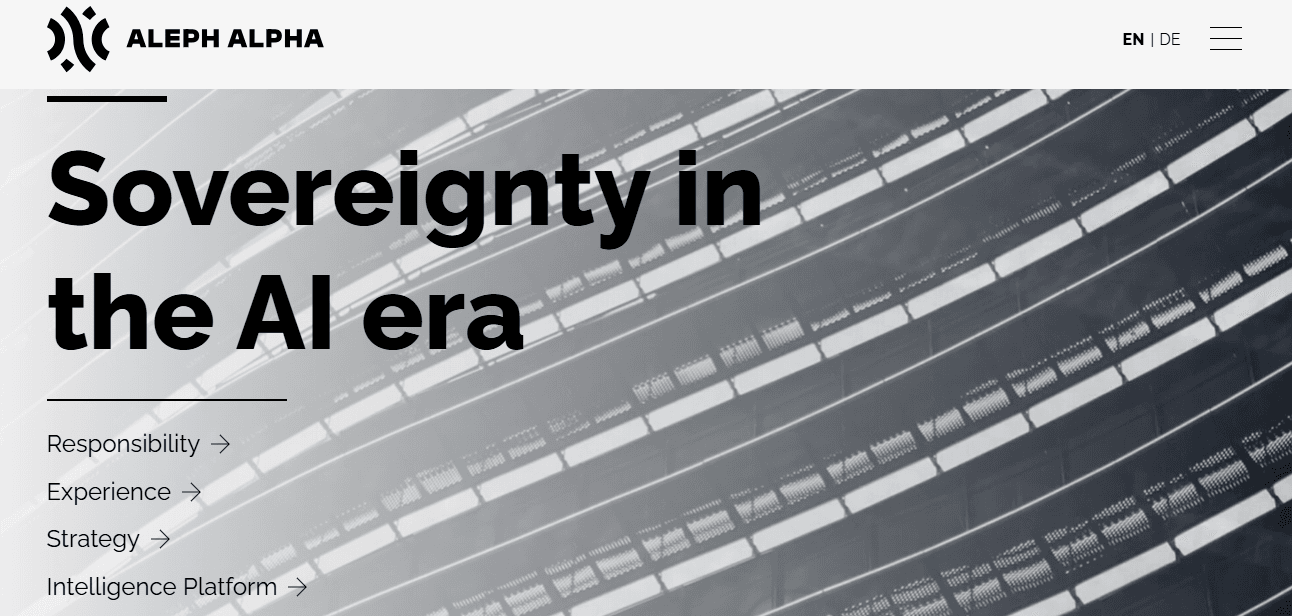
Aleph Alpha offers cutting-edge LLM services, focusing on high-performance and efficient AI models.
As an emerging player in the LLM as a Service market, these models are designed for large-scale tasks, including multilingual support and complex text analysis.
Key Features
Aleph Alpha’s LLM as a Service is built for performance and scalability, catering to businesses with demanding language processing needs.
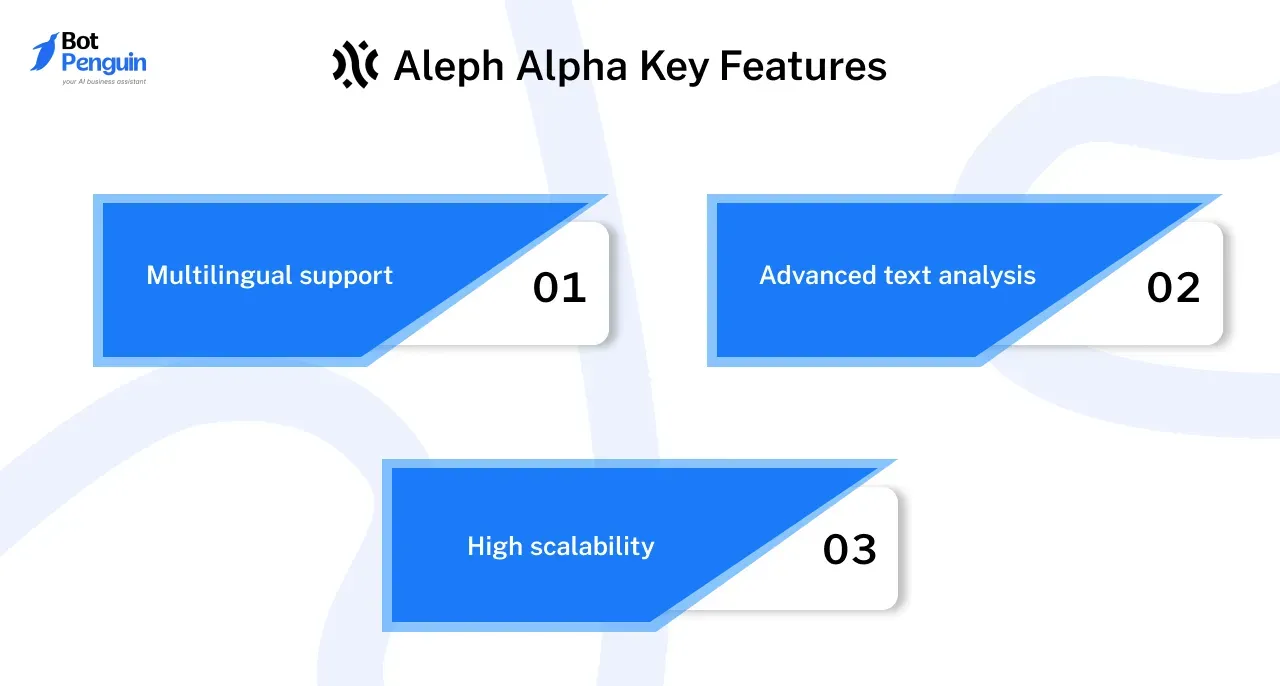
- Multilingual support: This feature allows global businesses to engage with diverse audiences effectively.
- Advanced text analysis: Aleph Alpha provides tools for detailed analysis and generation, suitable for intricate language tasks.
- High scalability: The models are designed to handle large-scale applications, making them ideal for enterprise-level projects.
Pros and Cons
As businesses consider Aleph Alpha's LLM as a Service, they should evaluate its strengths and limitations.
Pros:
- Excellent for multilingual tasks, enhancing global communication.
- Scalable solutions accommodate large projects, making it suitable for enterprises.
Cons:
- Limited availability for smaller teams, which may restrict access.
- Can be expensive for high-volume use, impacting budget considerations.
8. IBM Watson
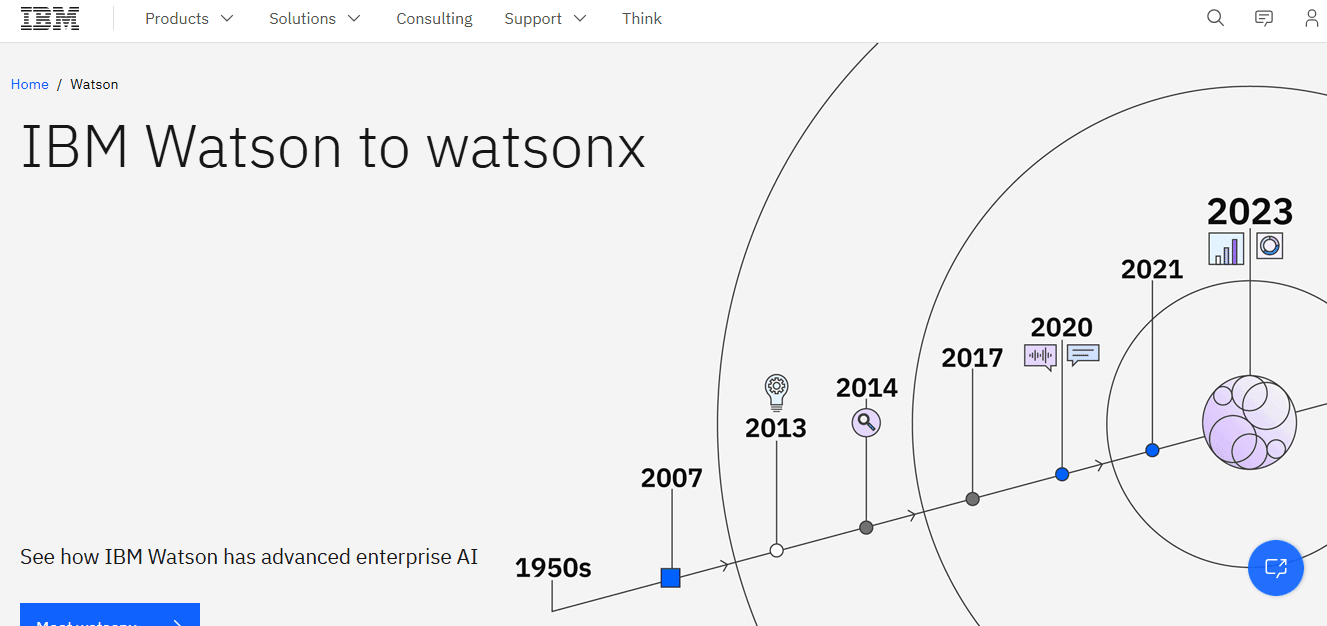
IBM Watson provides a comprehensive range of AI services, including advanced LLM as a Service capabilities tailored for businesses. Known for its robust AI solutions, Watson excels in supporting text-based tasks such as customer service automation and data analysis, making it a trusted choice for organizations seeking reliability.
Key Features
IBM Watson’s LLM as a Service includes powerful features designed to meet the needs of large enterprises across various sectors.
- Built-in NLP and text analytics tools: Watson’s integrated tools enhance text understanding and processing.
- Strong focus on enterprise-grade security: IBM ensures compliance with industry standards, making it suitable for sensitive applications.
- Multi-industry applications: The service supports diverse sectors, including healthcare and finance, addressing unique industry requirements.
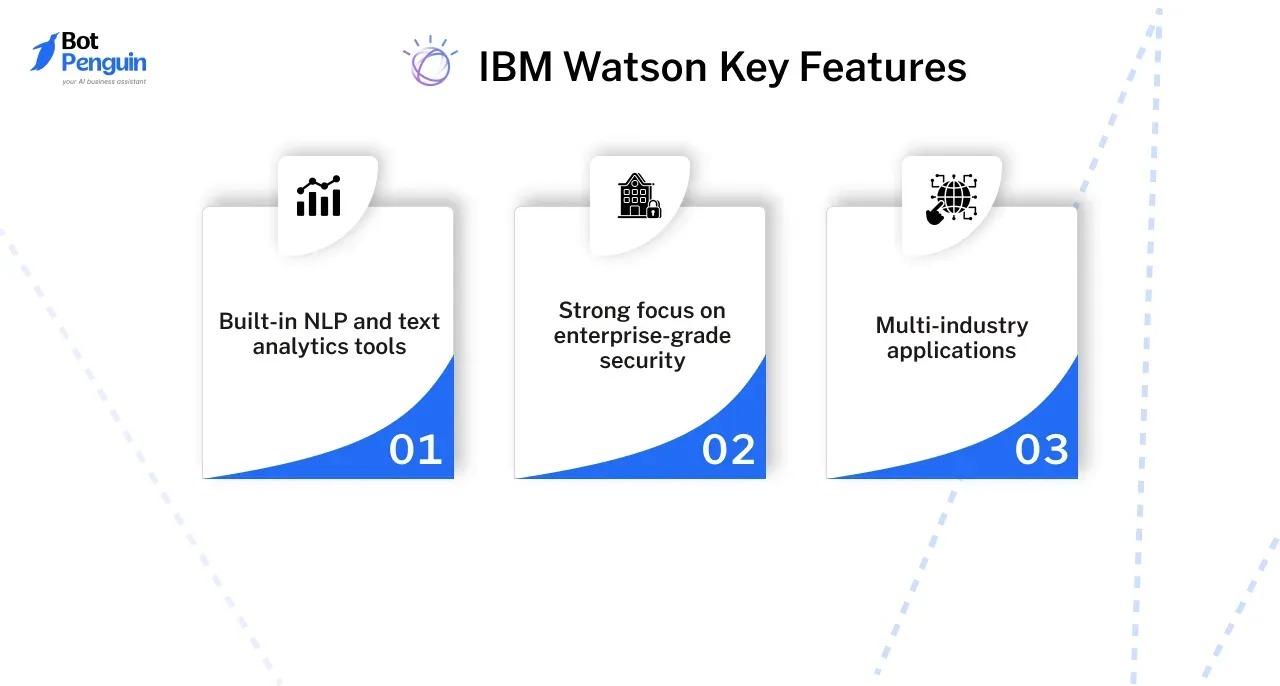
Pricing Structure
IBM Watson offers a flexible pricing structure for its LLM as a Service, catering to various business sizes and needs.
- Pay-per-use pricing model: Organizations only pay for what they use, promoting cost efficiency.
- Free tier: Basic features are available at no cost, allowing users to explore Watson’s capabilities.
- Customized pricing: Large enterprises can access tailored pricing plans to suit their extensive needs.
Pros and Cons
As businesses consider IBM Watson for their LLM as a Service needs, evaluating its advantages and potential limitations is essential.
Pros
- Trusted by large enterprises, providing a sense of reliability.
- Strong security and compliance features enhance data protection.
Cons
- Can be expensive, which may deter smaller businesses.
- Less flexible for smaller organizations, limiting accessibility.
9. DeepMind (Gemini)

DeepMind’s Gemini model is designed to push the boundaries of AI, offering high-quality LLM as a Service that combines text generation and advanced reasoning capabilities.
Renowned for its cutting-edge research, DeepMind delivers state-of-the-art AI services to businesses looking to innovate.
Key Features
DeepMind’s LLM as a Service is at the forefront of AI technology, providing advanced capabilities that cater to complex tasks.
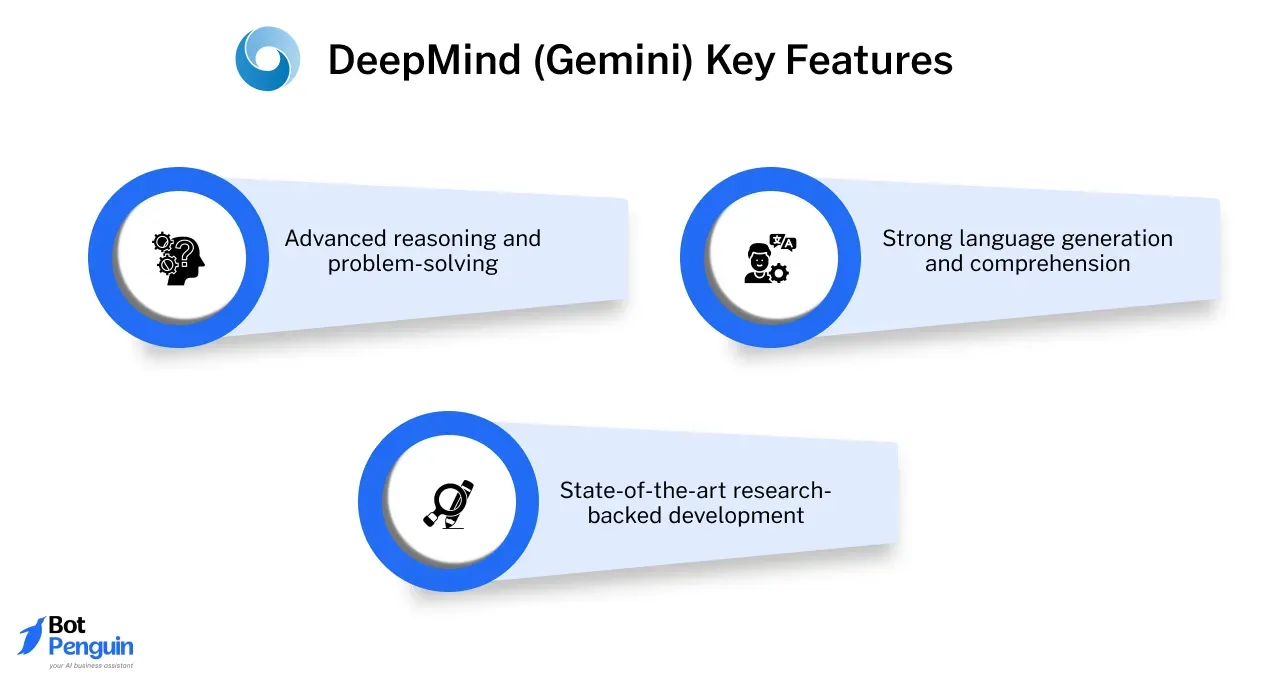
- Advanced reasoning and problem-solving: Gemini excels in generating insightful responses and solutions.
- Strong language generation and comprehension: The model is adept at understanding context and generating coherent text.
- State-of-the-art research-backed development: DeepMind leverages its extensive research to enhance model performance continuously.
Pricing Structure
DeepMind offers a pricing structure for its LLM as a Service that accommodates various users and uses cases.
- Usage-based pricing model: Organizations pay based on their consumption, ensuring fair pricing.
- Free tier: Available for research and educational purposes, allowing users to experiment with the model.
- Enterprise plans: Tailored options are provided for larger organizations with specific requirements.
Pros and Cons
When considering DeepMind’s LLM as a Service, businesses should weigh its strengths against potential drawbacks in comparison to other best LLM platforms.
Evaluating how it stacks up against the top LLM providers will help organizations make informed decisions about their AI integration strategies.
Pros:
- High-performance models are ideal for advanced applications and research.
- Innovative technology that sets a high standard in AI capabilities.
Cons:
- Can be expensive, making it less accessible for smaller tasks or businesses.
- May be overkill for simple applications, leading to unnecessary costs.
10. Mistral AI
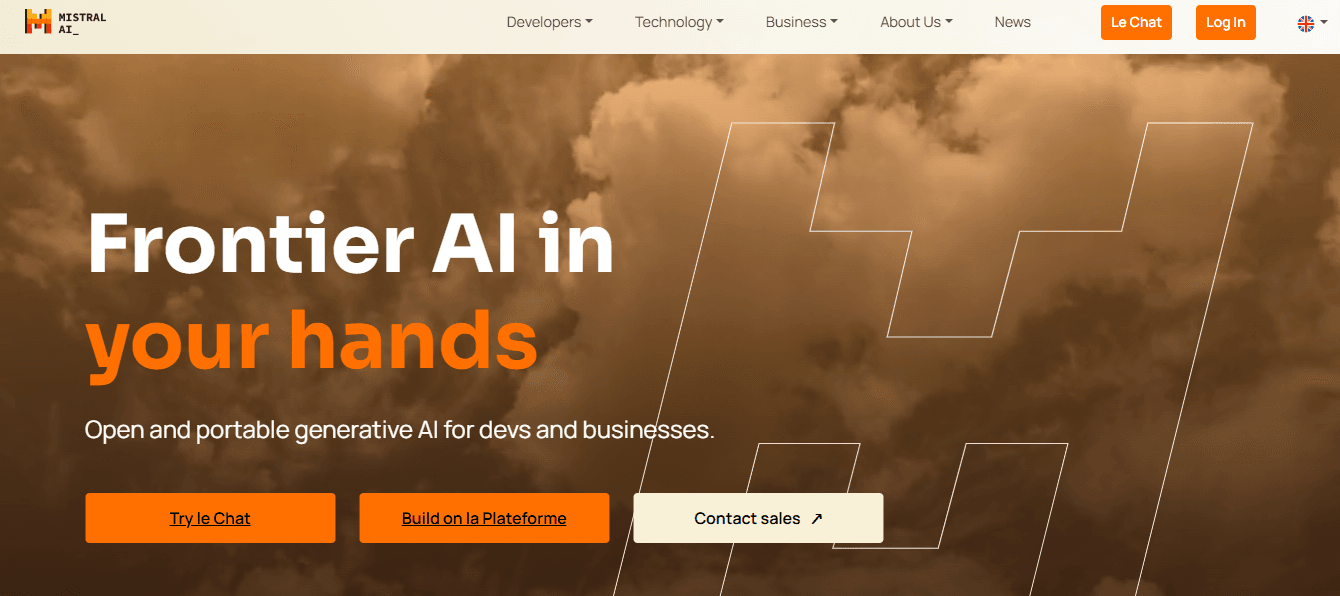
Mistral AI is an emerging player in the LLM as a Service landscape, providing lightweight and efficient models focused on fast and scalable performance.
Their offerings are ideal for businesses seeking cost-effective, high-speed solutions without compromising quality.
Key Features
Mistral AI’s LLM as a Service is designed for efficiency and affordability, making it suitable for a range of applications.
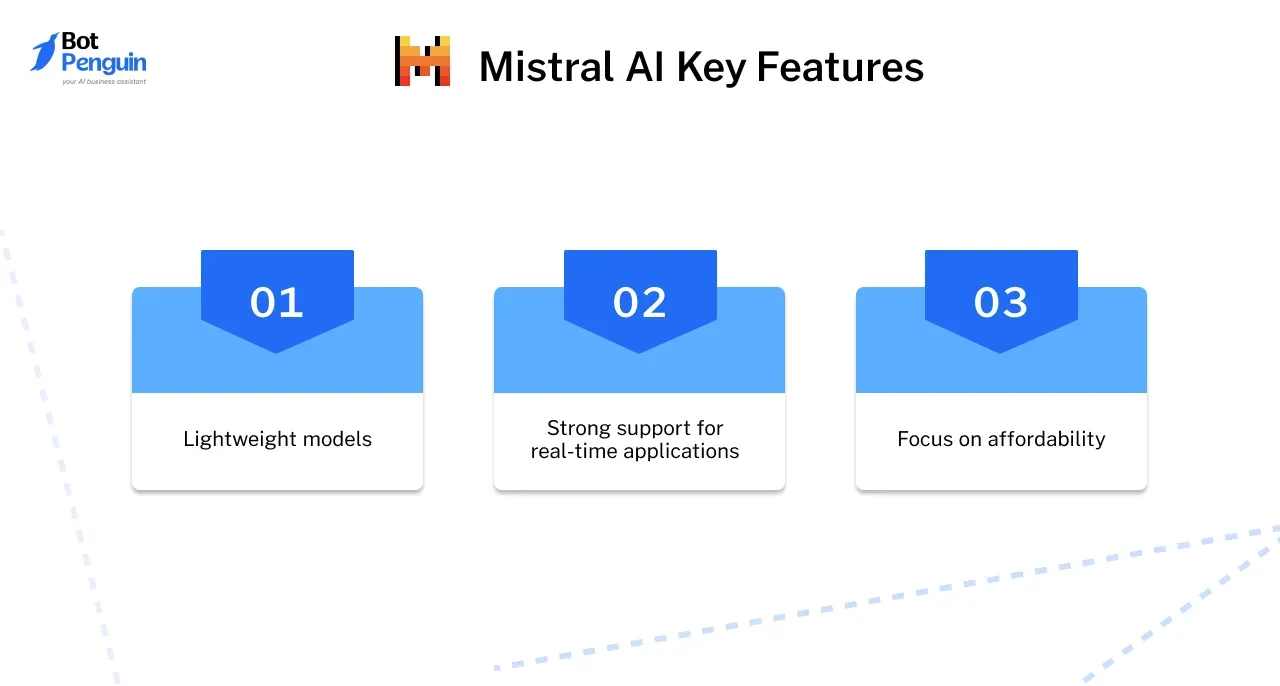
- Lightweight models: Optimized for speed, Mistral AI ensures quick processing and response times.
- Strong support for real-time applications: The models are ideal for businesses that require immediate results and interactions.
- Focus on affordability: Mistral AI provides solutions that deliver performance at competitive prices.
Pros and Cons
Evaluating Mistral AI’s LLM as a Service involves considering its benefits alongside some limitations.
Pros:
- Fast and efficient solutions ideal for real-time tasks, enhancing productivity.
- Affordable pricing makes it accessible for various business sizes.
Cons:
- Fewer features compared to established LLM providers, which may limit functionality.
- Models may be limited to basic tasks, reducing versatility for complex applications.
Conclusion
As we’ve explored the top 10 LLM as a Service providers in 2025, it’s clear that each tool brings unique strengths to the table.
From OpenAI’s robust GPT models to IBM Watson’s enterprise-grade solutions, these best LLM platforms are redefining how businesses approach language processing and AI integration.
Providers like Google Cloud AI and Microsoft Azure OpenAI Service excel in scalability and security, while newer entrants like Mistral AI focus on speed and efficiency at competitive pricing.
As organizations navigate their options among top LLM providers, selecting the right LLM as a Service is crucial for maximizing operational efficiency and enhancing customer experiences.
By aligning your business needs with the right best LLM API services, you can leverage advanced AI capabilities to gain a competitive edge.
For those looking to implement generative AI chatbots as part of their strategy, BotPenguin stands ready to assist, ensuring seamless integration and exceptional performance.
Frequently Asked Questions (FAQs)
What is LLM as a Service?
LLM as a Service provides businesses with access to large language models via cloud platforms.
This service enables companies to leverage advanced AI through best LLM API services for text generation, natural language processing, and data analysis without the need to build or maintain models themselves.
It’s an efficient solution offered by top LLM providers, allowing organizations to incorporate powerful AI capabilities seamlessly into various applications.
Which LLM provider is best for small businesses in 2025?
For small businesses, OpenAI and Cohere are among the best LLM providers in 2025, offering flexible pricing models and easy API integration through some of the best LLM platforms.
These options are ideal for small businesses seeking cost-effective, customizable language model services tailored to smaller-scale operations.
How does pricing work for LLM as a Service?
Most top LLM providers offer a pay-as-you-go pricing structure for LLM as a Service, often measured by API calls or tokens.
Additionally, many of the best LLM API services feature free tiers or trial credits, allowing businesses to explore these services on a smaller scale before committing to more extensive projects.
Are LLM services secure for enterprise use?
Absolutely. Leading providers like Microsoft Azure OpenAI and IBM Watson, recognized among the top LLM providers, prioritize security by offering robust features, including encryption and compliance with enterprise-grade standards.
This makes these best LLM platforms suitable for sensitive business applications that require high levels of data protection.
Can I customize LLM models for my specific needs?
Yes, customization is a key benefit of LLM as a Service. Providers like Hugging Face and Cohere, counted among the best LLM platforms, allow businesses to fine-tune and adapt models to meet specific tasks or industry requirements.
This flexibility ensures that organizations can optimize performance based on their unique goals, utilizing best LLM API services designed for maximum adaptability.



